Violette Szabo: how WW2 heroine earned her George Cross
Medal was awarded for daring spy missions immortalised in the film Carve Her Name With Pride
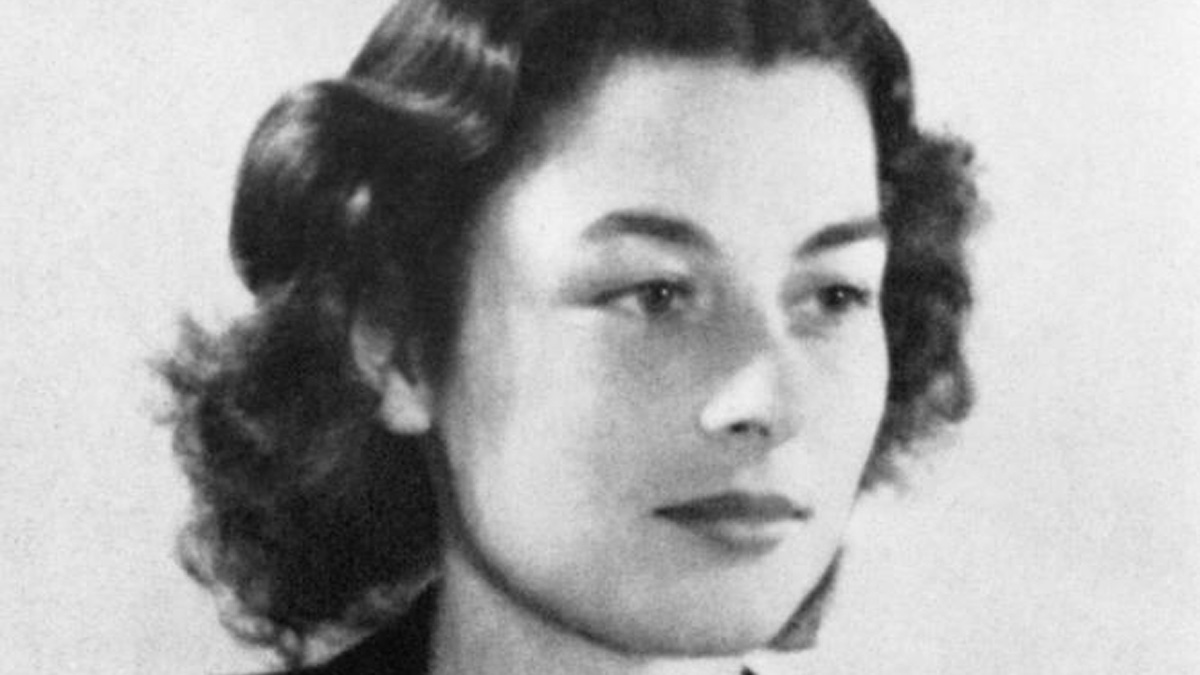
A free daily email with the biggest news stories of the day – and the best features from TheWeek.com
You are now subscribed
Your newsletter sign-up was successful
A George Cross awarded to Anglo-French Second World War spy Violette Szabo has been sold at auction for a record-breaking £260,000.
The medal, along with four others awarded to Szabo, was purchased by Lord Ashcroft to be displayed in the Imperial War Museum, London.
Szabo, whose courageous missions behind enemy lines were immortalised in the 1958 film Carve Her Name With Pride, is one of only four female recipients of the prestigious honour.
The Week
Escape your echo chamber. Get the facts behind the news, plus analysis from multiple perspectives.

Sign up for The Week's Free Newsletters
From our morning news briefing to a weekly Good News Newsletter, get the best of The Week delivered directly to your inbox.
From our morning news briefing to a weekly Good News Newsletter, get the best of The Week delivered directly to your inbox.
Szabo's daughter Tania told the Daily Telegraph that it was with a heavy heart that she had decided to sell her mother's medals after a fire left her home in ruins, but said: "I'm very happy with the result. They're going into a safe place where people will be able to view them – many thousands of people."
Tania recalled the day when she arrived at Buckingham Palace as an orphaned four-year-old to collect her mother's posthumous George Cross from King George VI in 1946. She attended the ceremony in a dress that her mother, executed aged just 23, had bought for her in Paris while on a reconnaissance mission.
Born Violette Bushey in 1921 to a French mother and a father from Berkshire, Szabo spent her childhood between France and south-west London. At the outbreak of the Second World War she joined the Women's Land Army, where she worked on a farm and in a munitions factory.
After a whirlwind romance, she married French Foreign Legion officer Etienne Szabo in shortly before he was sent overseas. For the next two years, she continued to work for the war effort as an armaments worker and an anti-aircraft gunner, as well as giving birth to their daughter, Tania, in 1942.
A free daily email with the biggest news stories of the day – and the best features from TheWeek.com
In 1943, soon after her husband was killed in action at El Alamein, Szabo was recruited into the Special Operations Executive (SOE), which conducted sabotage and reconnaissance missions in occupied Europe. For the best part of a year, she underwent intense training in evasion tactics, firearms, self-defence, cryptography, parachute jumping, explosives and survival skills, before being declared fit for operations in February 1944.
On 5 April 1944, Szabo parachuted into occupied France, where she posed as a French secretary while carrying out dangerous reconnaissance work, gathering intelligence on factories working for the German war effort, which would guide Allied bombing missions.
Her second and final mission saw her dropped into the countryside around the south-western city of Limoges on 8 June, two days after D-Day. She and her fellow agents were assigned to meet up with local resistance groups and help sabotage German communication lines, hampering their efforts to repel the Normandy landings.
Two days after landing, a car transporting Szabo to a rendezvous was stopped at a German checkpoint. With weapons and ammunition in the car, Szabo and the resistance fighter accompanying her had no choice but to open fire and try to flee in the confusion. Szabo twisted her ankle, but urged her companion to go on without her while she sheltered behind a tree and provided covering fire. According to two of her biographers, Szabo held off the German pursuers until she ran out of ammunition, when she was captured and taken away for interrogation, still defiant and cursing her captors.
After four days of questioning by the local SS security services, she was brought to a Gestapo facility in Paris, where she was tortured in an unsuccessful attempt to extract information.
In August 1944, she and several other women were sent to the notorious Ravensbruck concentration camp. Although the prisoners were ravaged by hunger, disease and hard labour, fellow inmates reported that Szabo remained in good spirits and was determined to make an escape.
However, Nazi authorities issued orders for her execution, and in early 1945, Szabo was shot in the head in front of camp officials at Ravensbruck. She was one of 12 of the SOE's 55 female agents to be executed by the Germans as a result of her activities.
-
 Local elections 2026: where are they and who is expected to win?
Local elections 2026: where are they and who is expected to win?The Explainer Labour is braced for heavy losses and U-turn on postponing some council elections hasn’t helped the party’s prospects
-
 6 of the world’s most accessible destinations
6 of the world’s most accessible destinationsThe Week Recommends Experience all of Berlin, Singapore and Sydney
-
 How the FCC’s ‘equal time’ rule works
How the FCC’s ‘equal time’ rule worksIn the Spotlight The law is at the heart of the Colbert-CBS conflict
-
 Garrett Graff's 6 favorite books that shine new light on World War II
Garrett Graff's 6 favorite books that shine new light on World War IIFeature The author recommends works by James D. Hornfischer, Craig L. Symonds, and more
-
 Allies at War: a 'revelatory' account of the Second World War
Allies at War: a 'revelatory' account of the Second World WarThe Week Recommends Tim Bouverie's 'old-fashioned diplomatic history' explores the often fraught relationship between world powers
-
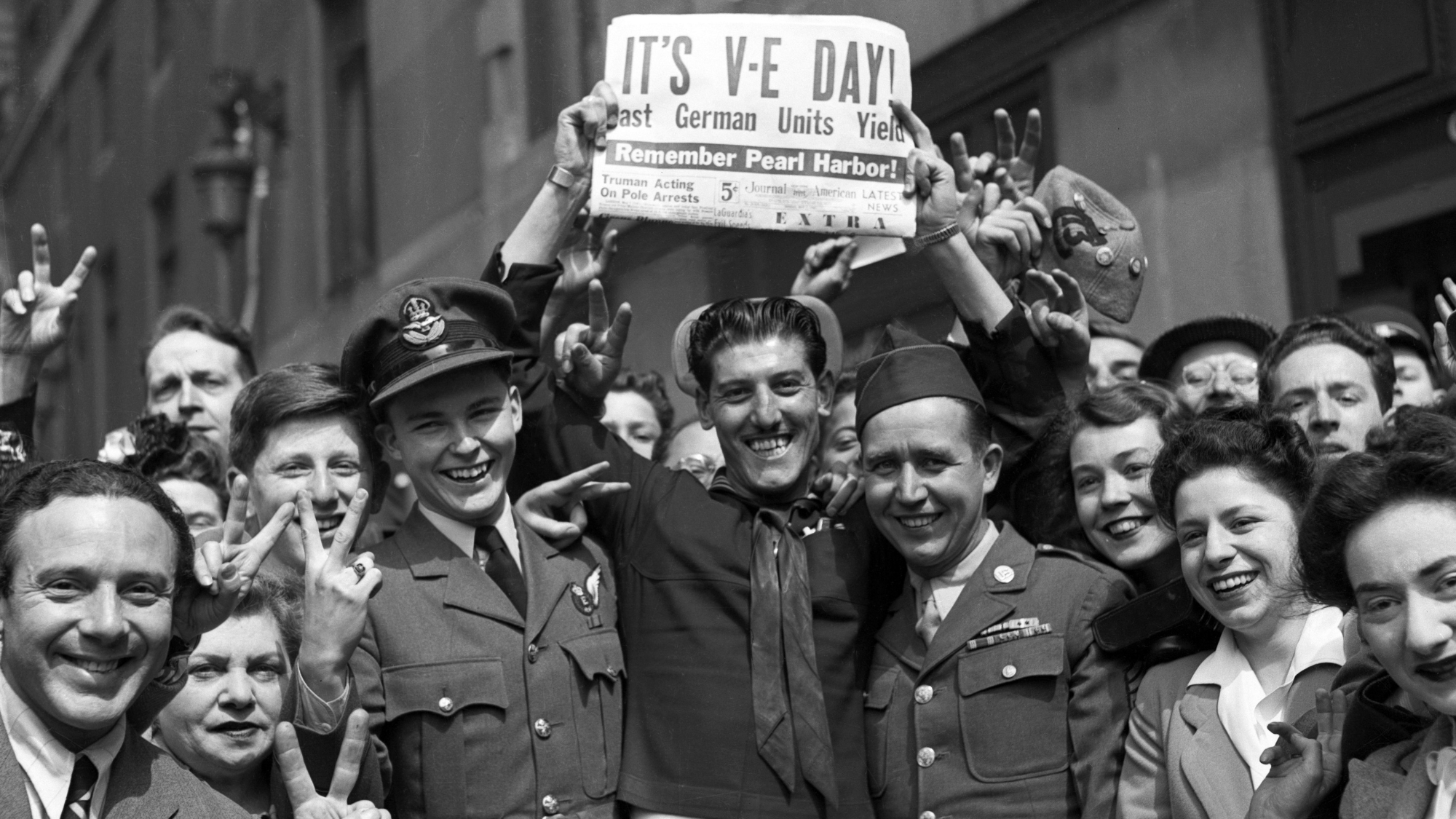 Celebrations to mark 80 years since VE Day
Celebrations to mark 80 years since VE DayThe Week Recommends Events will be taking place up and down the country, from parades to street parties
-
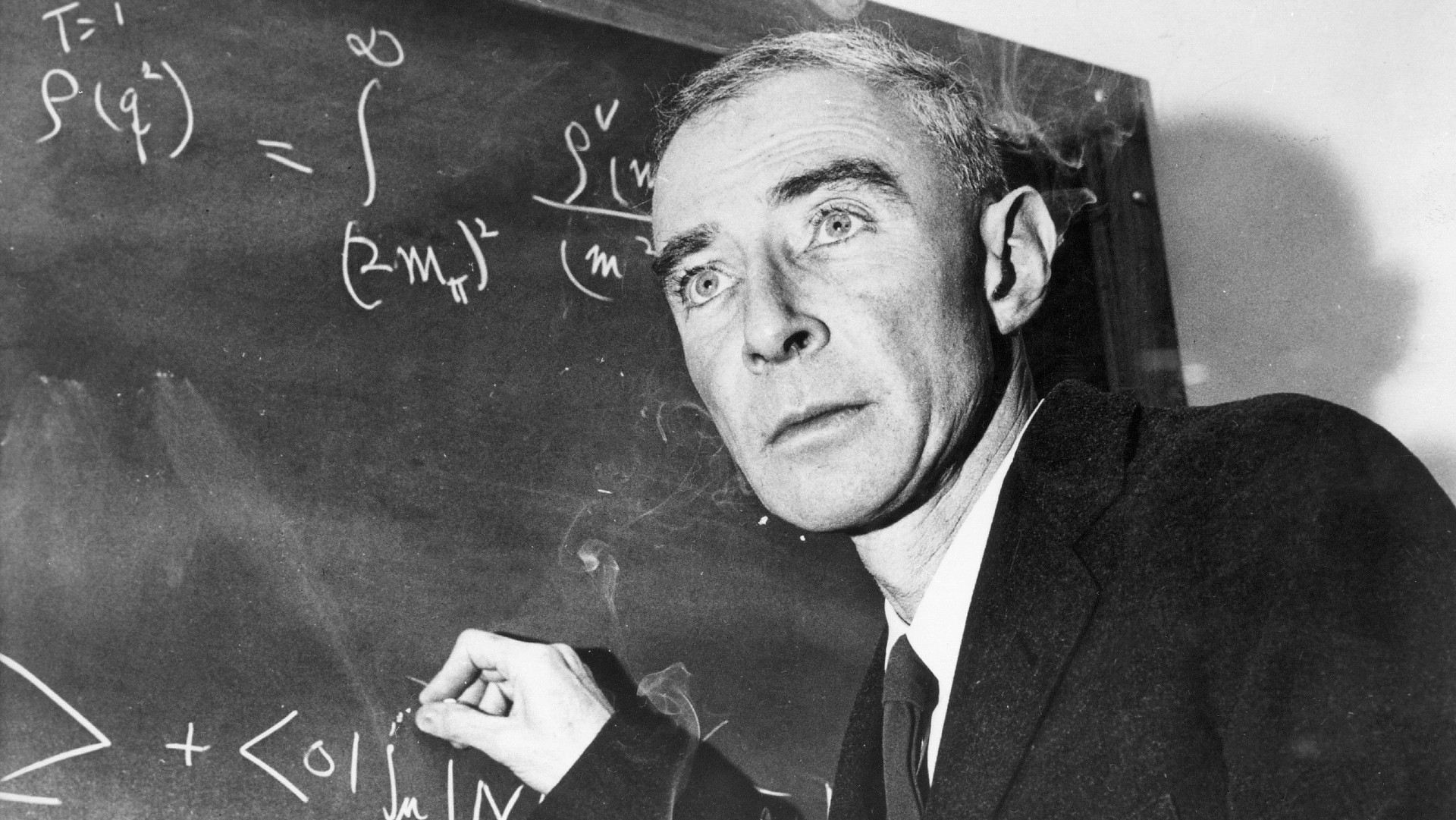 J. Robert Oppenheimer: the real ‘father of the atomic bomb’ at centre of new blockbuster
J. Robert Oppenheimer: the real ‘father of the atomic bomb’ at centre of new blockbusterIn the Spotlight The physicist who led the Manhattan Project has become a martyr for some but his legacy is more complicated
-
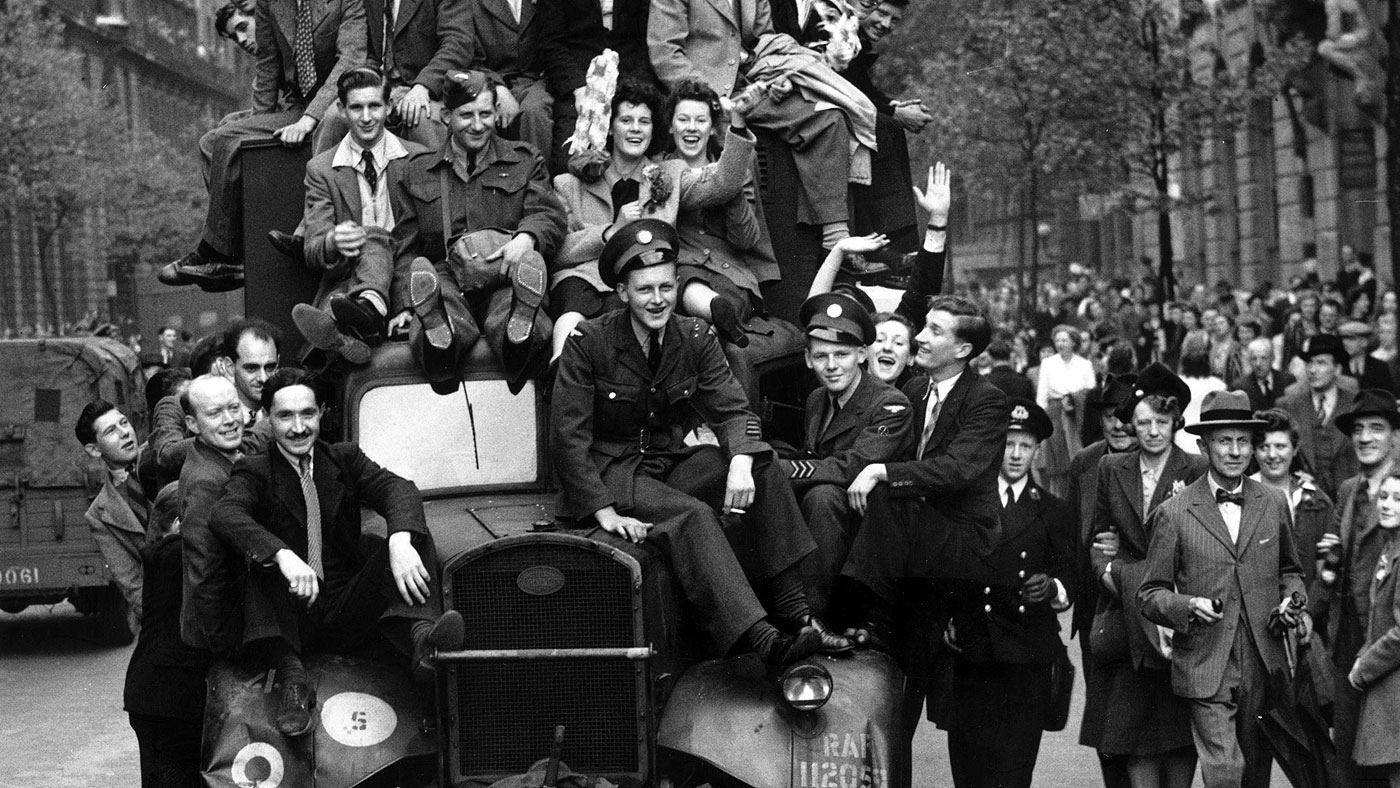 VE Day stories: victory, defeat - and nice knickers
VE Day stories: victory, defeat - and nice knickersIn Depth The end of WWII in Europe, remembered by those who witnessed it
-
 Catch-22 and five other must-read Second World War books
Catch-22 and five other must-read Second World War booksIn Depth George Clooney’s TV adaptation of Joseph Heller’s novel begins on Channel 4 tonight
-
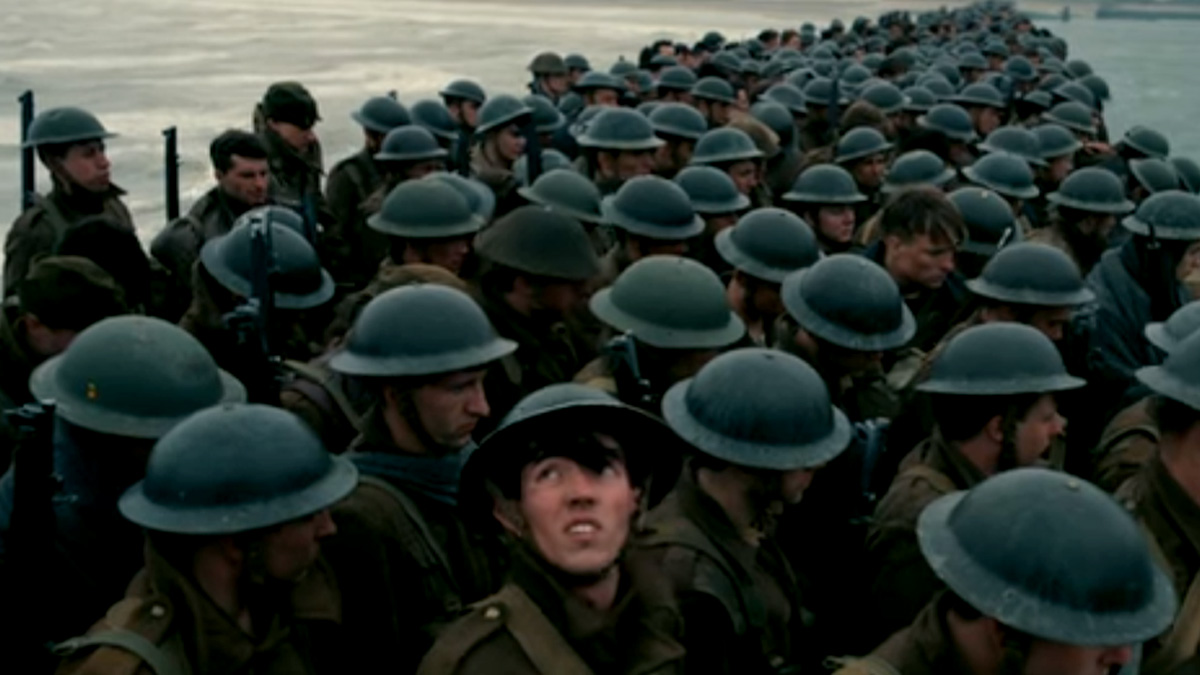 Dunkirk: New trailer is out - but where is Harry Styles?
Dunkirk: New trailer is out - but where is Harry Styles?The Week Recommends One Direction star missing in action from first glimpse of Christopher Nolan's nail-biting war drama
-
 New Imperial War Museum is spectacular and heartbreaking
New Imperial War Museum is spectacular and heartbreakingIn Depth 'Fascinating and frequently heartbreaking' exhibits make up for more 'adult' transformation